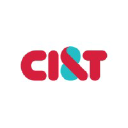Senior CloudOps Engineer
- Azul
-
Verified
Job Description
Are you ready to join a fun, nimble team that thrives on collaboration and innovation?
At Azul, we are dedicated to advancing our technology and infrastructure, and we are looking for passionate individuals to be part of our journey. As a member of our team, you will have the opportunity to work alongside talented Engineers who are committed to building and maintaining a secure and high-performance cloud infrastructure.
What You'll Do (aka the Responsibilities)
What You'll Bring (aka Education and Experience)
What You'll Bring (aka Skills)
What We Offer




